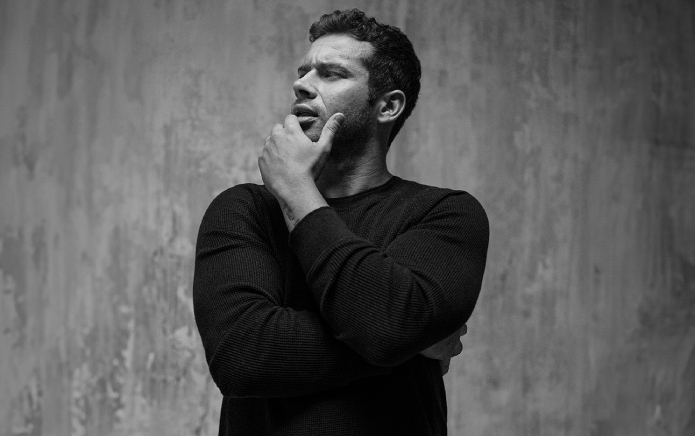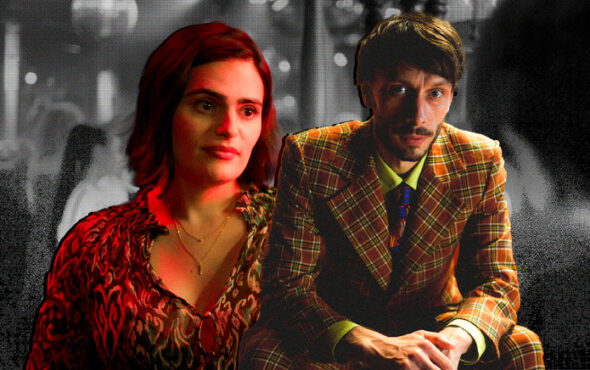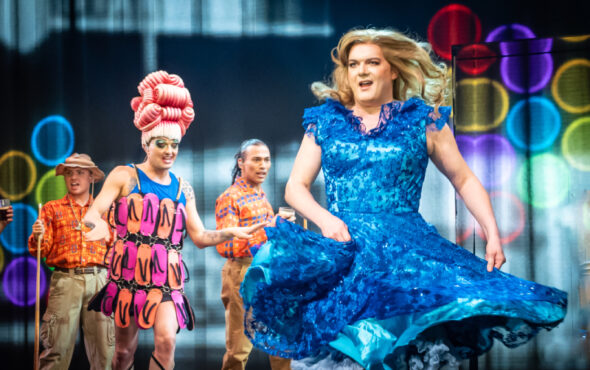
Following the release of her lauded EP, Rebecca Black Was Here, the singer-songwriter and inventor of Friday – the day of the week between Thursday and Saturday – is continuing to ‘move the needle forward’ in pop with her genius debut album Let Her Burn. With her career-defining new era, Rebecca firmly cements her status as one of hyperpop’s most formidable stars with a collection of futuristic bangers that ‘challenges, comments and expands’ on pop music’s history.
“We live in a time where we have so many resources for sounds and to take risks,” Rebecca tells GAY TIMES during her UK tour of Let Her Burn. “As a pop artist, if you’re not doing that, you’re totally fumbling the bag because right now, people are so connected to uniqueness and looking for something that stands out and connects with their own unique brand.”
Here, we chat with Rebecca about the darker – and more sensual – direction for her long-awaited debut album, how hyperpop has impacted her artistry, as well as her decision to publicly come out, and why, 12 years after the release of her viral hit Friday, she no longer cares about “how people perceive me”.
Rebecca, your debut album is insane. It’s a total rebirth. Why was now the right time for you to release it?
When I got my start, it was by no means planned. When Friday happened, it was so unexpected and I was literally 13-years-old. I had so much to get through before I even… I mean, at the time there were talks from managers and business people like, ‘You have to capitalise on this and immediately come out with your album, here’s the plan.’ I was like, ‘I need to grow up! I need to decide if I want to do this.’ I needed a lot of – not ‘soul searching’ because that makes it sound like I was a 40-year-old who was going through some crisis – but I needed to grow up. I spent the time since then, particularly the time since I’ve been an adult, learning how to write and what I wanted to say. That was important to me because I wanted to make something that was meaningful and something I would be really proud of.
How are you supposed to know what to say at 13? I spoke with Greyson Chance a while back and he said he doesn’t consider his first album his actual first album, because none of it was him.
Yeah, literally. Totally. It’s really crazy because when you put something out, obviously it has your name and face on it and people see it as you, right? Even if you’re a kid. People don’t really understand the same power dynamics that exist in families and schools exist as a kid in the industry. It’s disheartening. To see people criticise the child, when they’re just at the mercy of being a kid and being told they’re not smart enough to make their own decisions, they don’t know what they’re talking about. They have no say in what’s going on.
There is a clear tonal and aesthetic change between Rebecca Black Was Here and this album. Was there anything in particular that inspired this darker and sexier new direction?
Honestly, the music came before everything else. I had no album name. I had no cover art. I had no visual ideas until the album was done. That was stressful because I kept asking myself, ‘What is it? What do I want to do? What’s going on?’ Visuals are so important to me and the story is so important to me, so I sat there after the album was done, in every aeroplane and car ride I was in, thinking, ‘What is it?’ Once I had Let Her Burn as a title, everything made sense. I wanted it to live in a physical space; this burning house that I could live inside and outside of, being the one burning it down, that’s what made everything kind of fall into place. We shot the album cover and I worked with this designer, Cole Poska, who also did a lot of stuff for Rebecca Black Was Here, and it was an evolved moment for us both to be like, ‘What can we do? How do we make this feel so new?’ because it is like a continuation of my last project.
Let Her Burn tackles a lot of genres, particularly hyperpop, a side of your artistry that was first introduced on your EP. What is it about the genre that allows you t convey heartbreak and emotion in such an authentic way?
That’s a good question. To be honest, I don’t know if I ever set out to make a hyperpop record. At the same time, the way I view pop is that pop can be anything. If there’s anything it should be, it’s challenging, commentating and expanding on itself. We live in a time where we have so many resources for sounds and to take risks. As a pop artist, if you’re not doing that, you’re totally fumbling the bag because right now, people are so connected to uniqueness and looking for something that stands out and connects with their own unique brand. If you’re making generic safe stuff, what is it doing to move the needle forward? Which not everybody has to do… Anyway, I think that’s just the way I look at music; come up with ideas or a concept that I haven’t heard before. Having my own influences, how do I take that and make into something pop, bubbly, beautiful and brash?

Well Rebecca, this album is far from generic. This is not safe!
It’s definitely not safe. I was so nervous throughout the lead up to this process because I love the album and I’m so proud of it. I feel so connected with it, but you literally never fucking know.
Do you remember how you first found hyperpop?
I mean, I’ve just been a fan of so many people. I was a Charli XCX stan in the True Romance days! Through Charli, I found artists like 100 Gecs and Dorian Electra. Half of it was me being a fan for so long and loving that community and then also loving that community as a music fan. People like Umru were the first to reach out to me in 2020, and I talked about the rejection I’d face in the music industry. Once people became aware that people like Umru and Laura from Gecs reached out as friends they were like, ‘Just so you know, we love you and support you.’ Same thing with Dorian. Hyperpop was so welcoming to me and that was still a time that not many people were.
Hyperpop is an inherently queer genre, so how did finding that community have an impact on your sound but also publicly coming out as LGBTQ+?
Coming out was something that I wanted to do for a long time. I discussed it with the people I was working with at the time and when I actually decided to do it, it was one of the first things I ever did where I didn’t let anyone else’s opinions inform the way I did it. Looking back, that is probably the thing that informed the way I made music. It was like, ‘Oh, I can trust my intuition. I think I can trust the person that I am and people will accept that.’ Coming out was huge for that because I came out on a whim, talking to one of my friends on a podcast. Then people were like, ‘Okay, slay!’ I had just started making Rebecca Black Was Here at that point and I had made Personal and Girlfriend, and that’s when I started to find my own thread of trust with myself. I stopped caring about what other people thought about me.
When we last spoke, you said it’s “fun playing with people’s expectations” of you. So right now, after releasing your debut album, how do you want fans to perceive you?
It’s a really good question. I guess I don’t care how people perceive me, as long as they see me as somebody who can show them that you can trust yourself and forgive yourself, and forgive people who have hurt you. You can do whatever the fuck you want and be who you want to be. As long as they see me as somebody like that, I want them to see me as a way to believe in themselves and take me as an example of someone who was told that I wasn’t allowed to do something in a way that’s positive and creative. You can say, ‘No, I deserve to be here. I deserve to sit in this room with everybody else and I deserve a seat at the time. I deserve to be considered as a pop star. I know what I have to offer, and I know it’s good.’
Rebecca Black’s debut album, Let Her Burn, is out now.



